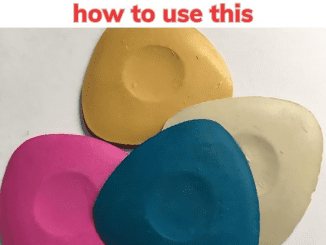
If you’ve ever seen a tall, leafy bush topped with golden, candle-like blooms, chances are you’ve encountered Senna alata—also known as the candle bush or ringworm shrub. But beyond its ornamental beauty, this plant is a real MVP in traditional medicine. Used across tropical regions for generations, Senna alata is packed with health benefits that go far beyond the surface. Whether you’re dealing with stubborn skin conditions or looking for a gentle natural laxative, this plant has your back—literally and figuratively.
The Antifungal Hero Your Skin Has Been Waiting For
One of the most well-known uses of Senna alata is for fungal infections—think ringworm, athlete’s foot, and more. The magic lies in a compound called chrysophanic acid, which targets fungi like a heat-seeking missile.
How to use it: Make a paste from crushed fresh leaves and apply it directly to the affected area. Leave it on for about 30 minutes before rinsing. Do this twice a day until the skin clears up.
A Natural Laxative That Actually Works
Senna alata isn’t just skin-deep. Its anthraquinones give it a natural laxative effect by stimulating the colon, helping to relieve constipation in a safe, gentle way—when used responsibly.
How to use it: Boil 1–2 teaspoons of dried leaves in a cup of water for 10 minutes. Let it cool, strain, and drink. Only use when needed, and don’t overdo it.
Say Goodbye to Bacteria and Hello to Healing
Aside from battling fungi, Senna alata is a powerful antibacterial. It reduces bacterial buildup on the skin, helping minor cuts and infections heal faster and cleaner.
How to use it: Brew a strong tea using fresh or dried leaves, cool it down, and use it as a natural antiseptic wash for minor wounds.
Relieves Inflammation Like a Pro
Senna alata has anti-inflammatory properties that help with red, swollen, or irritated skin. Whether it’s an insect bite or a rash, this plant can cool things down.
How to use it: Infuse fresh leaves in coconut or olive oil over low heat, then apply the warm (not hot!) oil to affected areas to reduce swelling and soothe discomfort.
Antioxidant Power for Whole-Body Wellness
Think of antioxidants as bodyguards for your cells. Senna alata is loaded with them, helping to neutralize harmful free radicals and support your immune system.
How to use it: Incorporate the leaves into your herbal teas or topical treatments for a boost in antioxidant protection.
Accelerates Wound Healing Naturally
Thanks to its antimicrobial and soothing properties, Senna alata can speed up healing of minor scrapes and cuts.
How to use it: Apply a poultice made from freshly crushed leaves to the wound, wrap gently with a clean cloth, and change twice a day.
Video : Senna Leaves: Benefits and Uses
Moisturizes and Soothes Dry, Itchy Skin
The leaves have emollient qualities that calm irritation and hydrate dry patches. Perfect for anyone with eczema-prone skin.
How to use it: Use the antifungal leaf wash or create a thicker paste as a face or body mask for 10–15 minutes.
Everyday Uses You Can Try at Home
Let’s break it down into simple, do-it-yourself applications that you can whip up in your kitchen:
1. Leaf Paste for Skin Infections
- Ingredients: Fresh Senna alata leaves, water
- Method: Crush leaves and add just enough water to make a paste. Apply directly to fungal infections, leave on for 30 minutes, and rinse. Repeat twice daily.
2. Antifungal Leaf Wash
- Ingredients: Fresh or dried leaves, water
- Method: Boil the leaves for 15 minutes in water, strain, cool, and use the liquid as a skin rinse for infections or itchy areas.
3. Gentle Laxative Tea
- Ingredients: 1–2 tsp dried Senna alata leaves, 1 cup water
- Method: Boil for 10 minutes, strain, and drink once cooled. Use only when necessary to avoid overuse.
4. Insect Bite Relief Oil
- Ingredients: Fresh leaves, coconut or olive oil
- Method: Simmer leaves in oil over low heat for 30 minutes. Strain and store. Dab on bites to ease itching and swelling.
A Word of Caution
Even natural remedies need boundaries. Overuse of Senna alata’s laxative properties can cause cramps and dehydration. Pregnant women, nursing moms, and people with underlying health conditions should talk to their doctor before using this plant. Always do a skin patch test before applying topically, especially if you’ve got sensitive skin.
Video : Senna Herb Tea: Benefits (Cassia Alata)
Why Senna Alata Belongs in Your Herbal Arsenal
Senna alata is more than just a pretty plant—it’s a powerful ally in natural wellness. From kicking fungal infections to soothing inflammation and aiding digestion, it brings serious value to any herbal toolkit. The best part? You can grow it, harvest it, and use it at home without any fancy equipment or chemicals.
Nature really does know best. So next time you see those glowing yellow “candles” blooming on a bush, remember: you’re not just looking at a plant—you’re looking at a pharmacy in disguise.


